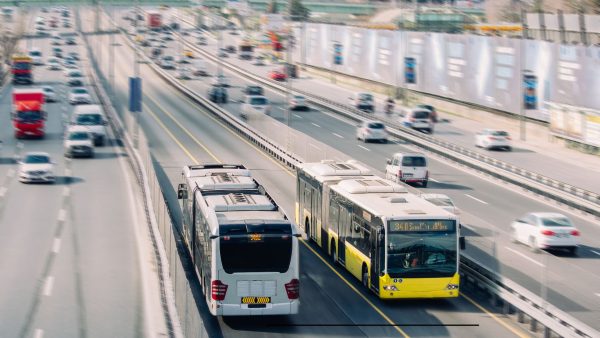Communities nationwide are investing big in transportation. Is Charlotte ready to keep pace?

As transportation needs grow, cities and counties across the country are passing substantial funding measures to support transportation infrastructure, from transit and roads to sidewalks and bridges. Charlotte and other North Carolina communities have taken steps in this direction with the recent passage of local transportation bonds on Tuesday, but to truly transform our region’s mobility options, a dedicated sales tax increase is needed—one that will generate the funding necessary for a comprehensive, impactful transportation overhaul.
Local progress in Charlotte and North Carolina
This year, Charlotte voters once again showed strong support for transportation, overwhelmingly approving transportation bonds that will address essential infrastructure projects across the city. These bonds are a crucial funding source that will help keep up with current needs. However, bonds alone aren’t enough to fully address the large-scale improvements required to transform Charlotte’s transportation network into a robust, multimodal system.
Beyond Charlotte, North Carolina communities are also committing to transportation, with local measures across the state supporting roads, transit, and pedestrian infrastructure. But to achieve a truly transformative vision, our region will need a funding mechanism like those adopted in other cities—one that can generate billions over the next two decades.
Notable funding successes across the nation
Charlotte isn’t alone in seeking ways to address the rising demand for quality transportation. Across the country on Tuesday, voters showed unprecedented support for substantial transportation investments through local sales and property taxes by approving 77 percent of 370 transportation funding measures on state and local ballots, according to initial results compiled by ARTBA’s Transportation Investment Advocacy Center (TIAC). The measures will generate an estimated $41.4 billion in new and renewed funding for roads, bridges, trails, and rail.
Some revenue will be available immediately through bond agreements, while most will be generated through sales, property, or other taxes collected gradually over as much as 30 years. Transportation funding measures appeared on ballots in at least 25 states, with 23 states approving at least one statewide or local question. These investments not only reflect communities’ commitment to transportation but also set an inspiring example of what’s possible with strong public support.
Here are some notable measures from this year’s elections:
- South Carolina: Four out of nine counties renewed or enacted a local sales tax for transportation, securing a collective $11.7 billion to fund roads, bridges, and transit over the next 25 years.
- Nashville, Tennessee: Voters approved a half-cent sales tax increase, generating $3.1 billion to enhance Nashville’s transit system, sidewalks, and roads.
- Seattle, Washington: Voters renewed a property tax that will raise $1.55 billion over eight years, strengthening Seattle’s transportation infrastructure.
- Maricopa County, Arizona: With the renewal of a half-cent transportation sales tax, Maricopa County will generate an estimated $14.9 billion over the next 20 years.
- Georgia: In a show of strong regional support, three out of seven counties approved or renewed local sales taxes, partially or fully dedicated to transportation needs.
Each of these communities has taken proactive steps to raise significant funds, allowing them to address long-term transportation demands and provide residents with safe, efficient, and accessible mobility options.
The path forward for Charlotte
It’s encouraging to see our local transportation bonds pass with such widespread support. But for Charlotte to keep pace with rapidly growing transportation needs, our region must consider a bold funding solution, similar to what Nashville, Maricopa County, Seattle, and others have adopted. A dedicated sales tax increase could provide the necessary funding to develop a future-ready transportation network that benefits all residents.
At Sustain Charlotte, we are committed to building awareness of Charlotte’s need for comprehensive transportation solutions. Let’s continue to look to the examples set by other forward-thinking communities and work together to advocate for the funding needed to transform transportation in our region.
Thanks for reading!
As a nonprofit, community support is essential for us to keep doing what we do — including providing free articles like this. If you found this article helpful, please consider supporting Sustain Charlotte.
Want to stay in the loop? Subscribe to our weekly newsletter and follow us on Instagram, Facebook, and X.
